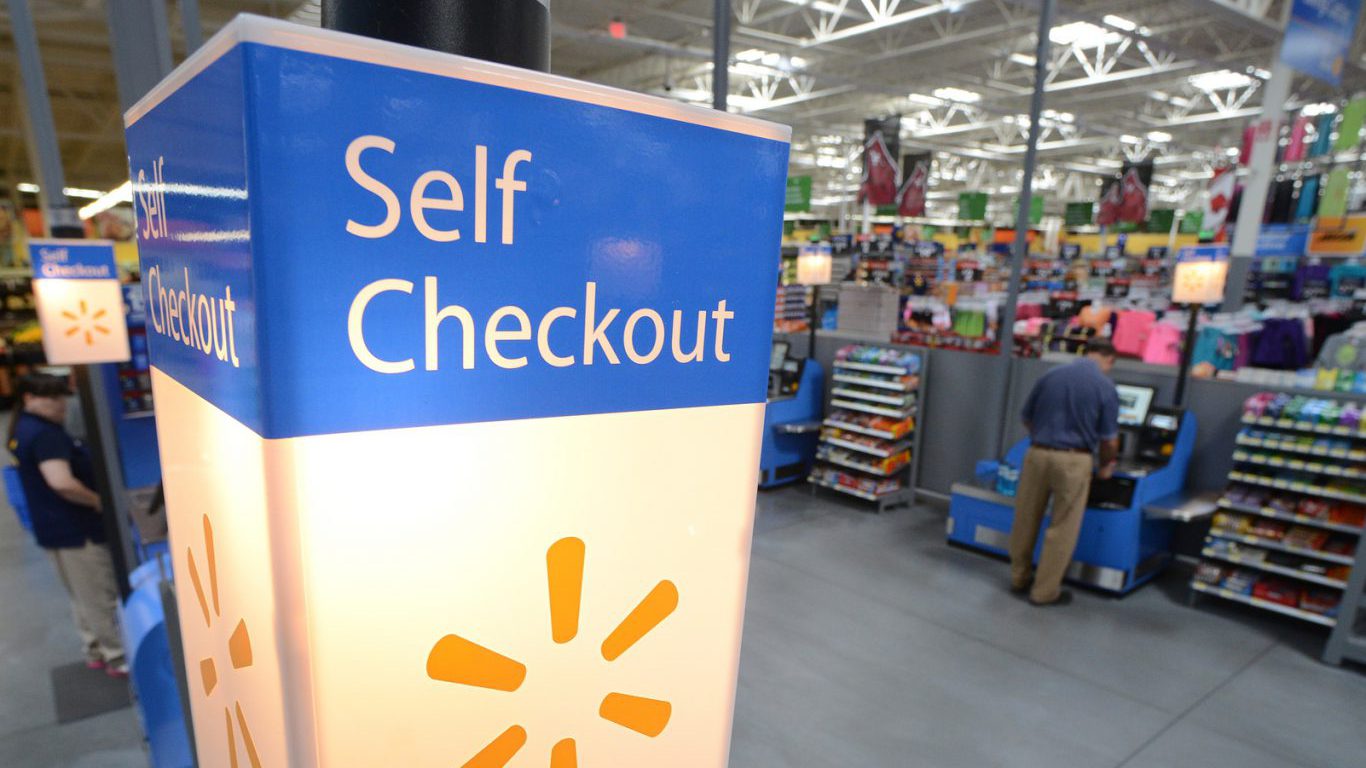
Of the 30 blue-chip stocks in the Dow Jones Industrial Average, only Wal-Mart Stores Inc. (NYSE: WMT) is showing a gain in Friday trading, up about 0.5% in the noon hour. Other blue-chippers are down anywhere from 5.8% (Goldman Sachs) to 0.3% (Verizon).
Wal-Mart owns U.K. low-price supermarket chain Asda with more than 500 stores in the country. It is safe to say that the performance of those stores has been disappointing at best and dismal at worst. Same-store sales tumbled 5.7% in the first quarter of this year, with store traffic down 5% and average ticket size down 0.7%. It was easily the worst performer in Wal-Mart’s international empire.
The good news for Asda came earlier this week with a report that Britons’ discretionary income was at its highest level since 2008, helped along by lower costs for food. The report, compiled by Asda and called the Asda Monthly Income Tracker, cited falling costs of essential items, a lower unemployment rate, and an increase to the country’s National Living Wage as the reason for the rise in discretionary income.
And given the sharp drop in the British pound following the Brexit vote, U.K. consumers are going to need all the spare cash they can get to pay for more expensive imported goods. That’s where Asda and competitors like Tesco come in — stretching those discretionary pounds further.
In the noon hour Friday Wal-Mart stock traded up 0.55% at $72.49 in a 52-week range of $56.30 to $74.14.
Take Charge of Your Retirement In Just A Few Minutes (Sponsor)
Retirement planning doesn’t have to feel overwhelming. The key is finding expert guidance—and SmartAsset’s simple quiz makes it easier than ever for you to connect with a vetted financial advisor.
Here’s how it works:
- Answer a Few Simple Questions. Tell us a bit about your goals and preferences—it only takes a few minutes!
- Get Matched with Vetted Advisors Our smart tool matches you with up to three pre-screened, vetted advisors who serve your area and are held to a fiduciary standard to act in your best interests. Click here to begin
- Choose Your Fit Review their profiles, schedule an introductory call (or meet in person), and select the advisor who feel is right for you.
Why wait? Start building the retirement you’ve always dreamed of. Click here to get started today!
Thank you for reading! Have some feedback for us?
Contact the 24/7 Wall St. editorial team.




